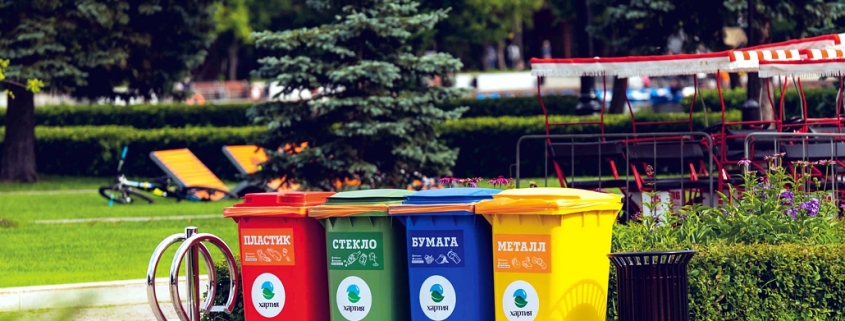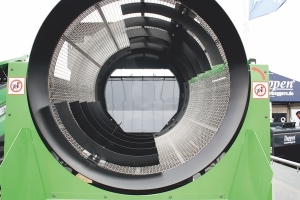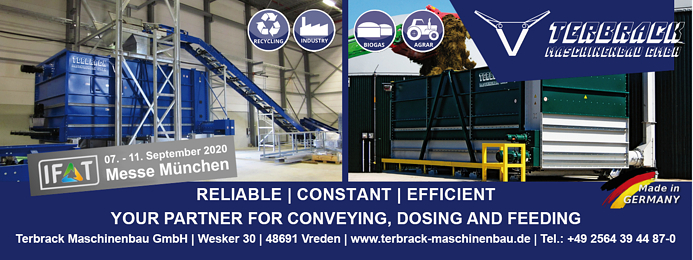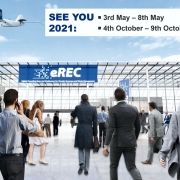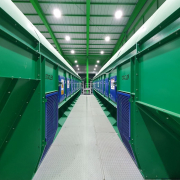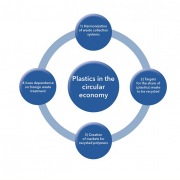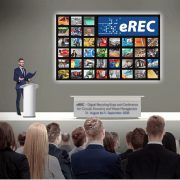Russia: Plans to Intensify Recycling Activities
The country intends to increase the volume of domestic waste recycling during the next years.
Russia plans to significantly increase the volume of waste recycling during the next several years and to raise the level of profitability of this business, according to recent statements of the Russian Minister of Natural Resources, Dmitry Kobylkin, who is directly responsible for waste recycling in the Russian government. As part of these plans, 60 percent of the overall waste, which is annually accumulated in Russia, will become a subject of recycling already by 2021-2022. Accordingly, the amount will be significantly higher as the current figures of 7-9 percent.
New state strategy
Implementation of these plans will be part of the recently approved state strategy, known as “For the development of the industry of processing, utilization and recycling of industrial waste for the period until 2030”, which was recently approved by the Russian government and signed by Russia’s Prime Minister Dmitry Medvedev.
According to Medvedev, the problem of waste recycling currently remains extremely important and acute for Russia. This should be solved shortly, due to the ever-growing number of illegal dumping, which appeared in Russia in recent years and which damages the local environment and health of local citizens. “The development of the domestic industry of waste recycling will be one of the priority goals for the Russian government until 2030”, Dmitry Medvedev commented. “We are planning to establish a new industry that will attract additional resources in the secondary turnover of waste and its recycling and will contribute to reduction of the volume of the burial of industrial wastes, which poses a threat to the local environment”.
Earlier this year, Medvedev also signed a decree, that imposed a ban on the burial of 182 types of waste within the territory of Russia, which should become a subject of recycling. According to official statistics of the Russian government, the total volume of waste, which is annually accumulated in Russia, is estimated at five billion tons – and this figure continues to grow each year.
In the heart of the new state program is the establishment of the national system of waste sorting. The new strategy will create conditions for the initial sorting and the transfer of various waste for recycling. These conditions involve the provision of financial incentives, which, according to an official spokesman of Dmitry Medvedev, will speed sorting and further recycling of waste in Russia.
The majority of funds for the implementation of these plans will be allocated from state sources, particularly the Russian state budget and the budgets of Russian regions, while the total volume of investments in the realization of the new strategy is expected to reach 10 billion US-Dollar. Furthermore, the government currently considers the partial lifting of taxes for companies involved in waste recycling.
Industry comments
Still, representatives of some leading Russian waste processing enterprises believe that the achievement of goals, set by the new strategy, may be associated with serious problems. According to them, waste recycling remains a low profitable business in Russia. However, there is a possibility that the situation may change this year.
Kirill Rieterman, general director of “Tiger-Siberia”, one of Russia’s largest waste processing companies, comments: “Waste recycling in Russia could be a profitable business only in the case of introduction of public-private partnerships between business and the government. Business cannot make this business profitable solely by its own forces. The government should create a scheme in which investors will understand that waste recycling is a long-term business in Russia, which will stimulate them to make investments in it, without the risk of losses of their funds”.
More importantly, to date, the rapid development of the waste recycling industry in Russia has been prevented by the existing problems, probably the most pressing of which was associated with a lack of necessary equipment for waste recycling and processing in Russia. Prior to 2017, the majority of equipment for the industry’s needs has been purchased by Russian businesses in the EU. However, the volume of supplies has significantly declined in recent years, when processors realized that the majority of equipment, imported from the EU, was not able to deal with Russian waste.
At the same time, another problem typical for the industry was related to the low cost of secondary raw materials. Russia’s leading waste-processors and recyclers also said that the main problems for their business in Russia come along with an enormous diversity of packaging, which is intended for the same type of products. According to them, this diversity and lack of unified standards in packaging significantly complicate its sorting and further recycling.
“There should be some kind of centralized system and some unified state standards so that packaging can be processed more scrupulously”, Daniil Yudin, head of Polymer Recycl-N PTC, another leading Russian recycling enterprise, commented. “For example, packaging for certain category products, such as eggs, should be made from certain raw materials. In the case of eggs’ packaging, it is recommended to be made only from polystyrene. The same could apply to other categories of products and their packaging. Then it would be much easier to sort and process.”
Processors have also said, that – unlike other housing and communal services, which are based on the consumption of easily measured resources (gas, water, electricity) – the accounting of waste in Russia is usually associated with serious problems and the presence of unfair businesses, including those, which is affiliated with the mafia. In this regard, the government fears that the allocated funds for waste processing and recycling could become a subject of theft, due to the difficulties in the tracking of allocated cash flows.
Waste-to-energy plants
Finally, the new strategy also involves the development of the domestic waste-to-energy market. As part of these plans, several large-scale investment projects in this field will soon be implemented in Russia. One of them will shortly be launched in the Moscow region and involves the building of four innovative waste-processing plants, that will generate electricity through the recycling of solid domestic waste.
The project will be implemented by the Russian financial holding RT-Invest, together with Hitachi Zosen Inova, while the volume of investments in these plans may reach Russian Rubles 62 billion (1 billion US-Dollar).
According to the CEO of RT-Invest Andrei Shipelov, the total capacity of the enterprises will be 700,000 tons per year, while their annual electricity output will reach 70 MW. In addition to the Moscow region, a similar enterprise will be established in the Tatarstan Republic, a center of Russia’s petrochemical industry (which struggles from the ever-growing volumes of plastic waste), while its capacity will be 550,000 tons.
In terms of waste structure in Russia, up to 62 percent of waste in the country is generated in the oil and gas industry, while the share of local mining and minerals’ industries is estimated at around 31 percent.
(GR12020, Page 37, Author: Eugene Gerden, Photo: Vlad Vasnetsov)

